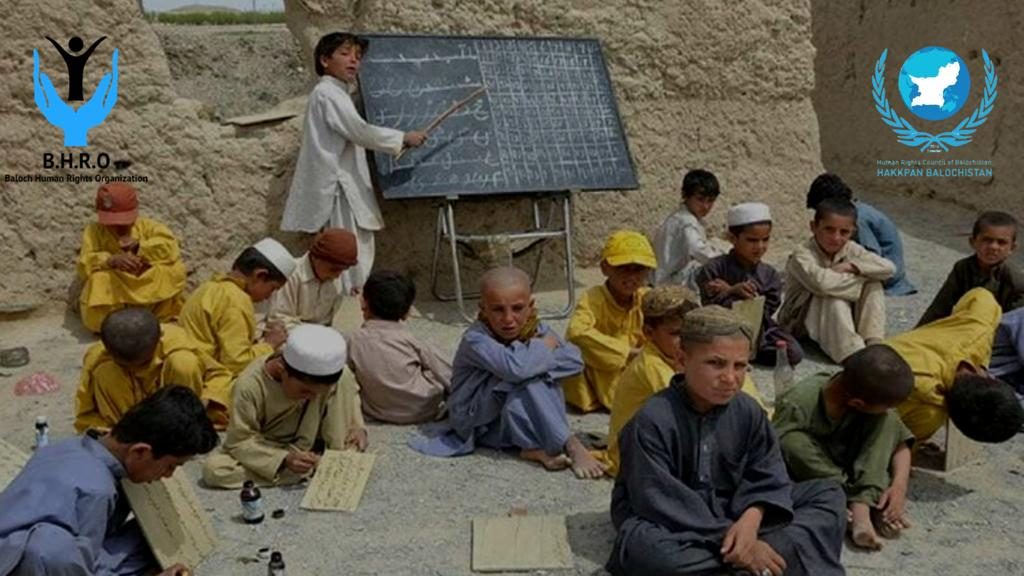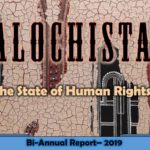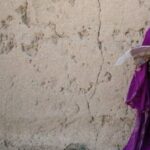At least a hundred cases of enforced disappearance and over a hundred cases of extra-judicial killings have come to our notice since the beginning of July.
As most of Balochistan remained unaccessbile to independent journalists and human rights groups, The Human Rights Council of Balochistan (HRCB) and the Baloch Human Rights Organization (BHRO) could only confirm details of 46 cases of disappearance and 15 killings in seven districts out of Balochistan’s 32 districts.
Being loyal to its years-old practice, security forces sieged villages and detained men on suspicion. Some were later released soon while the rest are missing.
Pakistan’s military bosses have been waging a ruthless counter-insurgency war against a separatist Baloch movement in the country’s largest province of Balochistan.
Thousands of Baloch politicians, student leaders, human rights activists, teachers and separatists militants have been forcibly disappeared and some of them killed in custody. Tortured and bullet-riddled bodies are often found dumped in the hills and plains of thinly populated Balochistan.
On 02 July, security forces abducted and forcibly disappeared Helál s/o Ghulam Jan a resident of Ball Samathi village of Dasht, district Kech, during a raid on house in Mondi area of district Gwadar. He works in Gwadar Development Authority, a project named by government after the indigenous people opposed building a deep-sea port in the town. The port connects Pakistan’s deep waters to China’s Kashghar port via road part of China’s Belt and Road Initiative. No one heard of him since then and his whereabouts remained unknown to the family and office.
Another watchman of Gwadar Port, Anis Latif of Kombél, Dasht was abducted and disappeared by military on the same day. He was picked up from his workplace, in front of other staff.
On 03 July, forces whisked away Ayaz Nabi Bakhsh, a resident of Alandoor area of Buleda district Kech, from Karachi’s Jinnah International Airport as his flight landed from Dubai, UAE. Family says they have lost contact after he flew from Dubai. He is missing since then.
On 05 July, forces raided a house in Saidabad area of Kilkor, district Panjgur and abducted Hakeem Ghulam.
On 07 Jul, forces forcibly disappeared Rasool Bakhsh Hassan resident of Gichk Darkop, Panjgur from main bazar of Panjgur.
On 08 July, seventeen persons were reportedly disappeared from different areas of Dera Bugti during a military operation in the region. The abductees include women and children. Region is not accessible and we could get partial details of six persons out of seventeen. The identified victims include Hamidullah, Nasibullah, Pir Ali, 70 years-old Soori Mirza Khan and two women, Mehr Bibi and Noor Bibi. According to sources, Pakistani forces burned down their houses and looted the valuables including 300 livestock.
On the same day military abducted Mutalib Abdullah resident of Nayabad Area of Gwadar, during a raid on his house in Gwadar town.
On 09 July, forces took away a 12-years-old boy, Balaach Hasil from a local van, when he was traveling from his hometown Karki, Tejaban area of district Kech to Turbat town.
On 12 July, forces whisked away Abdul Ghani Muhammad yousuf from Asiabad, Tump, district Kech, when he was coming back to home from Dubai.
Forces raided a house in Konshkalat area of district Kech and forcibly disappeared three persons including two brothers, Zafar & Zarif Dur Muhammad. The other victim was identified as Javed Dad Rahman.
Military raided two houses in Shahrak area of district Kech and abducted Arif Washdil and Baran Dad Bakhsh from their houses, in front of the family members and other villagers.
On 15 July, Navid Musa and Shehzad Tariq were abducted by military from their homes in Dazin area of Tump, district Kech.
On the same day, forces stoped a local bus In Hub Chowki and forcibly disappeared a passenger, Haji Hussain Noor Muhammad who was coming back home from Karachi. He was sick and visited Karachi for his treatment.
On 15 July, Zubair Kashmir resident of Bostan, Tump, district Kech was picked up by security forces from an auto repair workshop in the village.
On 16 July, forces abducted Maqbool Rafiq, a resident of Segek area of Kolwah, district Awaran. He was going to Kolwa from Turbat when he was stopped near a military check-post in Hoshap and then whisked away by the forces.
Twelve persons went missing from Dakhi Bazar area of Absar district Kech during a Raid. Six of them were identified as Parvez Ayoub, Sharif Suleman, Zahid Walid, Hafeez Hatir, khalil Pullain and Shaihaq Mohammad Salim while families of other six persons did not want to report the cases, in fear of losing their loved ones.
On 19 July, three persons went missing from Washbod area of Panjgur after military raided the village and took away the men. Shafiq Baloch, Abid yousuf and one more person were disappeared by military after the raid.
Next day, on July 21, forces raided a house in Nezarabad area of Tump, district Kech, picked up Mir jan Master Rafiq and moved him to unknown location.
On the same day, forces whisked away Jumma Abdul Ghafoor, a resident of Okar Jewani, district Gwadar from Kontani Hor area of Gwadar.
On 22 July, forces raided a house in Zomdan area of Pirandar, district Awaran and forcibly disappeared Badal Sher Muhammad during a raid.
On 23 July, six persons were forcibly disappeared during raids in various areas of Balochistan. Four of them, Sakhi Dad, Wazir Nambo, Hashim & Waheed Dil Murad were taken away from Ziarat e Dann area of Pirandar, district Awaran. Beebagr Noor Muhammad was abducted from Mulla Chaat area of Mand, district Kech, while Tahir Khan Muhammad was whisked away by military from Meskan Metag area of Pirandar, district Awaran.
On 24 July, forces raided the house of Qayum Syahok in Asiaabad, Tump area of district Kech and forcibly disappeared him.
On the same day, forces raided another house in Koh e Sar Metag, Jewani area of district Gwadar and whisked away Ata Abdul Razaq.
On 29 July, security forces raided a house in Srenken, Tump area of district Kech and whisked away Imtiaz Baloch.
The dead:
Six decomposed bodies were found dumped in three different areas of Balochistan during the month of July. Only one could be identified as Rehmat Gulab Khan. His body was found in Quetta, Balochistan’s capital, on 08 July.
Three decomposed bodies were also found in Panjgur, where two mass graves have been previously discovered that contained bodies of victims of enforced disappearances.
In one of the Panjgur’s mass graves discovered in 2011, locals found the bodies of three previously missing persons. Abid Shah, aka Agha, a student leader of the Baloch Students Organization was one of them. He had been taken away by the security forces in 2010.
More than a hundred dead bodies were found dumped in another mass grave in the district, discovered in 2014. One of the dead was identified as Naseer Ahmad, who had been abducted by Frontier Corps, a paramilitary force in Balochistan, from the marketplace of his village in front of several witnesses.
Reports have confirmed that more 131 unidentified decomposed bodies were buried in one of three graveyards near Quetta in the last 26 months. Only five of them could have been identified. All those unidentified bodies were later buried by a charity organization in a brand new graveyard with digits instead of names on each gravestone.


